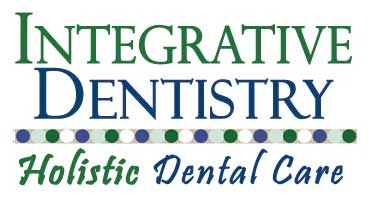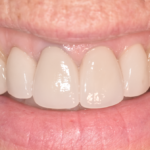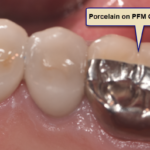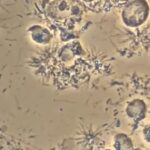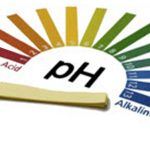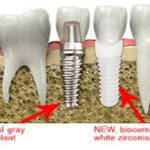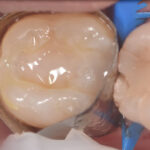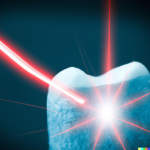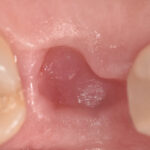What research is starting to show is that there are a few key nutrients responsible for keeping the mouth healthy. How healthy we stay can be traced back to how well we respond to the challenges of modern day life. Three of the biggest areas that challenge our immune system ability to heal are:
Stress
A majority of us are in some form of sympathetic stress in our daily lives. By sympathetic stress I mean ‘fight or flight.’ Our bodies are made to deal with temporary fight or flight conditions where cortisol and adrenaline spike up when we need to escape danger. However, to have this happen multiple times daily is not normal. When someone cuts you off in traffic, when you get in a fight with a family member, when your boss… well you get the idea. We demand that our adrenal glands release these fight or flight hormones way too much and it keeps us in sympathetic dominance. Basically, we are in cortisol or fight or flight dominance way too much. This results in systemic inflammation.
Toxicity
Let’s face it, we live in a toxic world. With the invent of the chemical and plastic industries over 50 years ago in this country toxicity is a way of life and need to be minimized if we expect our immune systems, organs and even our genome to stay healthy. Even in dentistry plastics are being used in the resin, white fillings that are being used. I discuss composite fillings in Section 3 of my Article ‘What is Holistic Dentistry.” However, the main toxic exposure comes from metals that are used on a routine basis in dentistry. This includes metal amalgam fillings that contain 50% mercury. This is discussed in Sections 5 and Section 6 in ‘What is Holistic Dentistry.’
Infection
This is becoming the biggest challenge to our health in modern day society. One cause is the globalization of our planet. Ease of travel has causes certain populations of microbes, i.e. bacteria, viruses, and parasites, to become more common and our exposure to them unavoidable. For instance I find spirochetes in the majority of my patient’s mouths. Examples of systemic spirochetes are responsible for Lyme’s disease and Syphilis. I also find amoeba, which is a parasite, in approximately 25% of my patients. Research shows that if these microbes are in your mouth they are most likely also in your intestines. Also, if your gums bleed these microbes have access to your blood stream and thus to the rest of your body. To read more about these stealth microbes as they are being called, you may go to this article where I discuss how I image them in the mouth.
The three environmental stresses listed above end up down regulating our immune systems and ability to heal from challenges and injury. Basically we become run down. Just like a car if we don’t take care of it and run it too hard it will eventually break down and need major repairs not just maintenance.
The 5 Most Important Dietary Factors in Dental Health
Other behaviors that lead to sympathetic dominance include eating on the run, consuming stimulants and eating nutrient poor diets. most of us don’t know and is just starting to be understood is the importance of the following nutritional factors in how our mouths heal. Here is a short list of nutritional factors that have the most impact on dental health and how the tissues and bone of the mouth heal:
#1 Sugar
Eating a diet rich in carbohydrates and sugar can and usually does raise blood sugar levels. This has a huge impact on how well we heal. If we have elevated blood sugar or Diabetes we just don’t heal as well and surgeries are always more complex and have higher rates of failure. There is nowhere in the body this is more true than the mouth. People have lost limbs due to complications attributed to diabetes so it is nothing to take lightly.
#2 Vit D
Vitamin D is called a vitamin but it is actually a hormone that regulates other hormones, mineral levels and bone health. Without adequate levels of Vit D our bone doesn’t heal and is not healthy. Vit D is also being discussed in integrative medicine in being a cancer preventative.
Vitamin D is also involved in immune function and therefore allergic reactions. The immune system is compromised under the conditions of vitamin D deficiency. Therefore, vitamin D deficiency slows implant osseointegration and increases the risk of bone graft infection. (1) Most people in the northern hemisphere have a Vit D deficiency because they work inside and aren’t exposed to enough sun.
#3 LDL
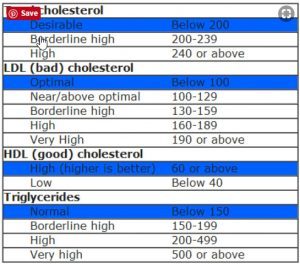 LDL is short for low density lipoprotein which is considered ‘bad cholesterol.’ HDL is short for high density lipoprotein or ‘good cholesterol.’ if your LDL is high or high relative to HDL this is not healthy. High LDL contributes to inflammatory plaque deposits in arteries and increases the risk of heart disease. It also increases the risk of strokes and diabetes.
LDL is short for low density lipoprotein which is considered ‘bad cholesterol.’ HDL is short for high density lipoprotein or ‘good cholesterol.’ if your LDL is high or high relative to HDL this is not healthy. High LDL contributes to inflammatory plaque deposits in arteries and increases the risk of heart disease. It also increases the risk of strokes and diabetes.
What is not as well known is that high LDL levels prevent proper healing after dental surgeries of all kinds. In a research paper printed in the Journal of Oral Implantology, it was shown that excess low-density lipoprotein cholesterol (LDL) is responsible for a slower bone metabolism or lower dental implant osseointegration. (1)
What this means to you is that before you have any dental surgery that involves bone or bone grafting think about testing your LDL and HDL levels, especially if you have diabetes or a history of heart disease or high blood pressure. No one wants to have a failure or or healing complications when it comes implant surgery, bone grafting or gum surgery.
#4 Poor diet and vitamin/mineral deficiency
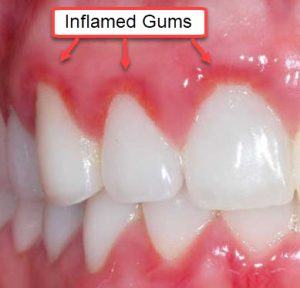 Most people know the importance of calcium to bone health, and calcium is often given to slow down the onset on osteoporosis. However, calcium usually not the problem. Few people are deficient in this mineral as it is the most abundant mineral in our bodies and there are plenty of calcium sources both animal, legume and plant based.
Most people know the importance of calcium to bone health, and calcium is often given to slow down the onset on osteoporosis. However, calcium usually not the problem. Few people are deficient in this mineral as it is the most abundant mineral in our bodies and there are plenty of calcium sources both animal, legume and plant based.
The lesser known minerals and vitamins vital for bone health are magnesium, zinc and Vitamin C. When it comes to dental health most of us have heard of the importance of Vit C. Vitamin C restores the vitality and ability of our gums to heal and keep from bleeding. Scurvy, common with sailors in the 1800’s. is caused by a Vit C deficiency and results in red, swollen and bleeding gums.
Magnesium and zinc are important, in fact vital, for proper bone formation and healing. The moral of the story is to make sure you get adequate minerals by eating foods rich in these minerals or supplement. More on the foods to eat are below.
#5 Omega 3 fatty acids
Omega 3 fatty acids are of vital importance to health and most of us are deficient in it. Omega 3’s also help with bone healing.
I will go into more depth about nutritional factors in another post as this is a hugely important subject and one that needs to be understood. I bring them up here just to give you an outline of the vital nutritional factors behind healing and dental health. Just to highlight how important these are, they affect how well our gums and bone heal after surgical procedures.
Before You Have Dental Surgery of Any Kind
The take home message here is that if you are deficient in the above nutrients, you won’t heal as well and may have more problems and pain after procedures are done like extractions including wisdom teeth, root canals and implants. I will link when I have more in depth information on this. The bottom line is that nutrition can go a long way in improving results and lowering healing times with these procedures.
Other Nutrients Important for Dental Health
Listed below are a full list of the most important nutrients and foods that help support dental health and healing:
Protein
The development of tooth structure as well as mucosal and connective tissue has protein as its foundation. In other words you need healthy sources of protein to build and maintain the health of your teeth, gums and bone.
Food sources: Organ meats, Greek yogurt, cottage cheese (should be low sodium), eggs, milk, whey, meat, fish, chicken, turkey, fish and sea food, peanut butter, protein powder, peas.
Minerals
Calcium is the most abundant mineral in the body, and is used for the formation of teeth and bones, as well as for muscle contraction, blood clotting and nerve conduction.
Food sources: Dairy products, small amounts of organic tofu, canned fish including bones and believe it or not leafy vegetables like kale, broccoli and bok choy.
Phosphorus is the second most abundant mineral in the body. Calcium and phosphorus intake must be balanced in order to build and maintain strong, healthy bones and teeth.
Food sources: Wheat germ, soy beans, nuts, meat, poultry, fish, eggs, citrus fruit, cucumbers, tomatoes, grapes.
Zinc is a trace element that is vital for the formation of connective tissue, teeth, bone, nails, hair and skin. In the mouth it is found is saliva and enamel.
Food sources: Oysters, red meat, poultry, beans and nuts.
Iron is utilized by the body in two forms: heme and nonheme. Heme iron is found in animal foods that originally contained hemoglobin. Your body absorbs the most iron from heme sources rather than the nonheme iron from plant sources.
Food sources: Heme sources: red meats, fish, and poultry. Plant-based, non-heme: spinach, beans and lentils. Iron enriched and fortified foods.
Oils
Omega- 3 Oils Help the immune system in dealing with chronic inflammation and is therefore important for the prevention of gingivitis, an inflammatory response of the gums that is the first stage of periodontal disease.
Food sources: While plant-based forms of omega-3 oils are available, the most helpful source of these oils is from seafood. Krill oil, from a type of plankton, is an excellent source and may be superior to seafood.
Vitamin D Vitamin D is not actually a vitamin, it is a fat soluble hormone that is necessary for metabolizing calcium by regulating the ratio of calcium to phosphorus. It has been called “Sunshine Vitamin D” because our bodies can produce it by exposure to the sun. In Southern California it is generally considered that we have enough sun exposure year round. For other areas there are calculators online that help you determine how much exposure you are getting according to location and time of year. However, the best way to tell if we have enough Vit D in our body is to do a blood test.
Sources: Sunshine, supplementation, dairy products, eggs, some cereals, oily fish (tuna, sardines etc).
Other Essential Vitamins
Vitamin A The mucosal tissue, which includes the gums, cheeks and parts of the tongue, all require this fat soluble vitamin, as does the connective tissue. This includes the ligaments that attach the teeth to the jaw.
Food sources: Sweet potatoes, carrots, kale, melons and butternut squash. Blue fin tuna.
Vitamin C Necessary for collagen, which maintains the structure of mucosal and connective tissue.
Food sources: Yellow bell peppers, guavas, kale, kiwis, broccoli, strawberries, oranges, peas.
B Vitamins Turnover of a type of cells, called epithelial cells, lining the mouth.
Food sources: The different B vitamins are distributed among various types of foods. Eating a balanced diet that consists of animal products, fruits, vegetables, eggs and fish will usually provide sufficient amounts.
-
- Choukroun J1, Khoury G, et al. Two neglected biologic risk factors in bone grafting and implantology: high low-density lipoprotein cholesterol and low serum vitamin D. J Oral Implantol. 2014 Feb;40(1):110-4. doi: 10.1563/AAID-JOI-D-13-00062. Epub 2013 Oct 9.
